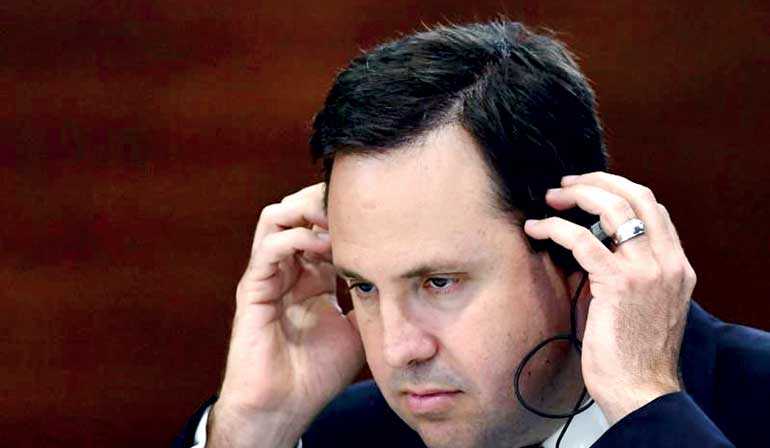Thursday Feb 19, 2026
Thursday Feb 19, 2026
Thursday, 17 May 2018 00:03 - - {{hitsCtrl.values.hits}}
 Australia's Minister for Trade, Tourism and Investment Steven Ciobo listens during a joint press conference held on the sideline of the Asia-Pacific Economic Cooperation Ministers Responsible For Trade (APEC MRT 23) meeting in Hanoi, Vietnam. REUTERS
Australia's Minister for Trade, Tourism and Investment Steven Ciobo listens during a joint press conference held on the sideline of the Asia-Pacific Economic Cooperation Ministers Responsible For Trade (APEC MRT 23) meeting in Hanoi, Vietnam. REUTERS
Sydney (Reuters): Australia’s trade minister will use a visit to China this week to reinforce ties with his country’s largest trading partner, he said yesterday, following a recent souring in relations.
Steven Ciobo’s arrival in Shanghai today marks the first trip by an Australian minister in eight months, part of Canberra’s effort to protect access to a market for everything from iron ore to baby formula, analysts said.
“I am not going to paper over the fact that, in the past several months, the focus has been on the differences,” Ciobo told the Australian Broadcasting Corporation (ABC) in a radio interview. “I will be ensuring our relationship with China is afforded the priority it deserves.”
Ciobo will hold talks with Chinese officials during his three-day visit. Relations between Australia and China have been tested just two years into a free trade pact after Australian concerns about Chinese influence spurred legislation banning foreign political donations.
China responded with a formal protest and reportedly withheld visas for Australian government officials, jeopardising a biennial trade fair, sparking fears the row could escalate and further threaten ties. Officials of both sides are working to reschedule the trade show, though a source familiar with the discussions said that may not happen.
Ciobo, the last Australian minister to visit China in September 2017, said he would also attend Asia’s largest food and beverage exhibition, SIAL China.
China bought AUD 93 billion ($69.57 billion) of Australian goods and services last year, underpinning corporate heavyweights such as miners Rio Tinto and BHP Billiton.
Smaller firms, such as food and beverage maker Bellamy’s Australia, have also profited from its rising demand. Trade ties are just one aspect of a delicate balancing act for Australia, whose security ties with the United States have limited the closeness of relations with China, analysts said.
China’s construction of islands and military facilities in the South China Sea, through which some $3 trillion in trade passes annually, has fed concern it seeks to curb free movement and extend its strategic reach.